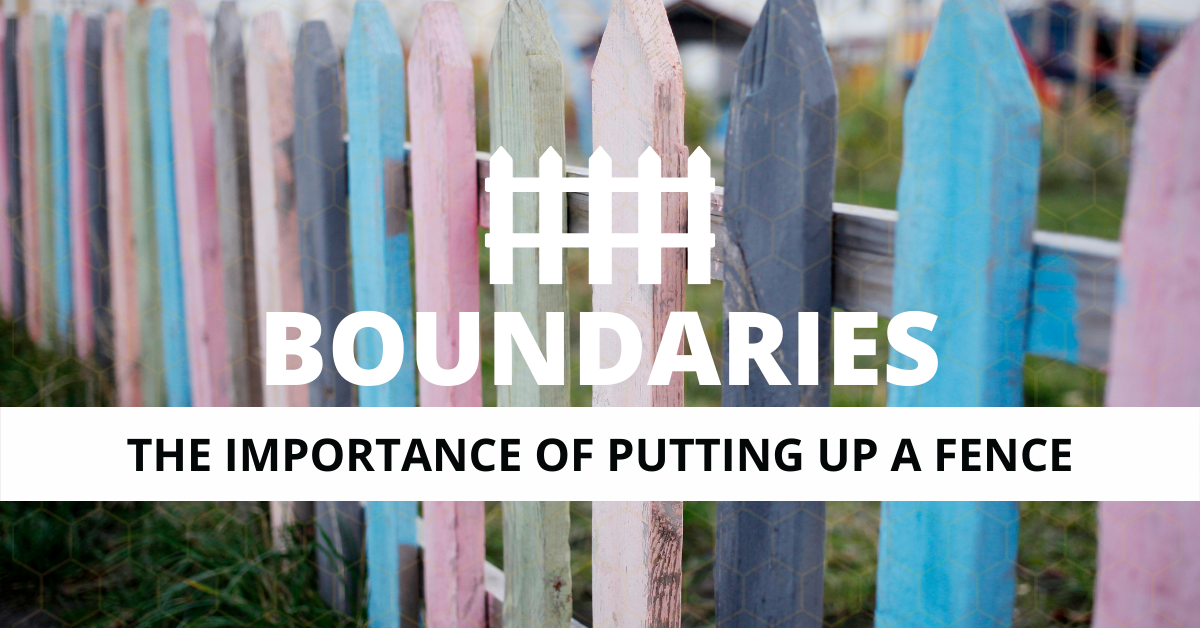They say good boundaries make good neighbors.
Some time back I lived on a small Scottish island off the west coast. To get there, I had to take a 45-minute ferry. Even though people had lived there for more than 4000 years, it was still what I’d call a “small” community.
The word small can be used in different context, as you might appreciate.
Our place, which was pretty descent sized for the area, was positioned directly in the middle of farm land. Right next to our coffee shop was a cow barn that collected silage. Adjacent to our home was the home of the previous owner. To our south, besides an incredible view, was sheep. And on either side of us, was sheep.
Sheep are Stupid
Sheep are stupid. My son and I once had to pick up a yew that had fallen into our creek because if we hadn’t, she’d have just laid there and died. She ended up in our creek, because there was no fence between our property and the farmer’s property on that side. And, once one decided to cross the creek, all the rest of them followed.
Our property was both our home and our business. We had a place where people, mostly tourists, could come an enjoy the view, our offerings, our coffee shop, and more. If we wanted sheep all over the place, walking on our kids play area, up the walkway to our shops, and trampling the plants, we’d have bought sheep.
Space helps us maintain our own, well, space. When people are right on top of us, or they don’t respect that space, sheep end up in our creek and all over our land. It allows us to focus on our own interests and do the things we want to do, without having to pick up the crap left behind others. In this case, sheep crap.
Build a Fence
I decided to build a fence between our land on that side, and the land owned by the farmer to prevent sheep from walking all over the place again. For some reason, that offended the farmer because nobody had ever built a fence there before, in many generations.
I can remember him showing up and saying, “You can’t just build a fence…” And I was like, “Sure I can, it’s our land.” As Americans, we tend to bring with us our own perspectives, experiences, and even elements of our culture. The UK has its own history and culture, as does Scotland, and of course, the island itself. We had lived in both England and Scotland on the mainland, but this was the first time we lived on an island. To say that the people on the island are different, is a bit of an understatement.
As you can imagine, I built the fence anyway. And from that point on, his sheep never came on our land again. Building fences isn’t only relevant to running a good business to keep someone else’ animals from messing things up (not the least of which was me and my staff having to spend hours getting them off our land), but it directly relates to interpersonal relationships too. Good personal boundaries matter.
Parkinson’s Law
Parkinson’s law is the idea that “work expands so as to fill the time available for its completion.” People are like that too, in some respects. But first, work. It doesn’t matter if it is work-work, as in your job, or busy work. If you don’t manage your time, other people will manage it for you. That’s just how it goes. If you give yourself 30 days to do something, it will take you 30 days. That’s Parkinson’s law. If you give it 1 week, you’ll do it in one week. Time is a precious commodity. You can’t make any more of it.
So, control it.
Which means, you have to set boundaries. If you allow work to come home with you, it will always come home with you and occupy that time. Remember, work is really just you trading your time for compensation. And in my entire life, I’ve never had a job or known someone with a job, where the bosses were automatically considerate of your personal time outside of work. I’ve found this especially so for those who are considered “exempt” employees, where they can work 70 hours a week and not be paid overtime.
Helping Everyone, All of the Time
This of course also spills over to friends. I remember I once spent a lot of my time helping other people fix problems, random problems, because I have a lot of skills that many other people don’t possess. I happen to be quite an accomplished generalist, which means I can stack skills. Not everyone can do that, so they need help.
The problem is, if you say yes all the time 1) you lose that time that you could spend (ie invest) elsewhere (with family, other friends, at school, on hobbies, etc); and 2) you almost never get paid for it. If you’re lucky, you’ll get a thank you.
Saying No
It took me a while to realize that people will, even with the best intentions, take. They may not be takers (which refers to people who literally spend their lives taking advantage of others for personal gain) per se, but they’re still taking your time. Again, this means you have less time for other things like family, other friends, hobbies, and so on.
Yes, I am repeating myself.
The solution to this is to learn how to say no. It doesn’t have to be rude, just clear. You have to decide what time you’re willing to give away, and what you want to reserve. Then, appropriate it accordingly. If someone needs you (at work, a friend, whatever) do something (I say need, but I mean want), and it doesn’t fit into your time allotment for that job, person, or whatever—then say no. Draw the line. Put up a fence.
And then keep it there.
Setting healthy boundaries is just a rational, intelligent part of caring for yourself. Did I mention it was healthy? It’s perfectly fine to be assertive without being aggressive; just politely say that you have other commitments. This also allows you to honor any existing time commitments, so you don’t over load your plate.
This is all about living life on your own terms.
Nothing remotely wrong with that.










